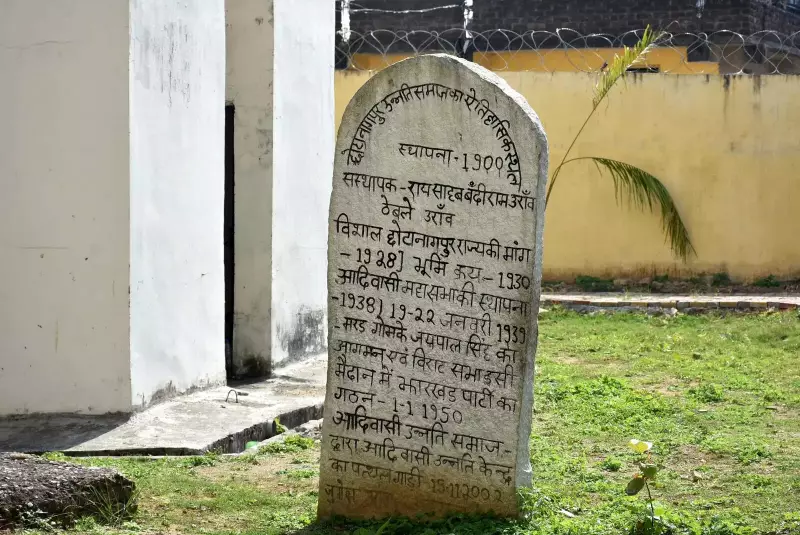
In the heart of Ranchi's now densely populated Hindpiri locality, a silent stone pillar stands as the forgotten witness to Jharkhand's dramatic struggle for identity and statehood. This unassuming site at Adivasi Maidan holds the echoes of a historic gathering that would change the region's destiny forever.
The Birth of a Movement
January 1939 marked a turning point when tribal icon and Indian hockey legend Jaipal Singh Munda, who captained India to Olympic gold in 1928, addressed a massive assembly at this very ground. His powerful speech ignited the Jharkhand statehood movement, awakening tribal consciousness and rallying people to unite for their rights over jal, jangal, jameen - water, forest, and land.
Ratan Tirkey, who participated in the statehood agitation, recalls the significance of that moment. "In this very ground, Jaipal Singh Munda sowed the seeds of the Jharkhand statehood movement by uniting the indigenous people and urging them to preserve their culture, history, art, language, and every element of their identity," he stated.
Historical Betrayal and Resource Rights
The gathering revealed shocking truths about the delayed implementation of the Chotanagpur Tenancy Act. Although scheduled to take effect in 1903, the crucial legislation was only enforced in 1908. During those five critical years, industrial giants with British support conducted extensive iron ore mining in East and West Singhbhum, stripping tribal communities of their natural resources.
Jaipal Singh Munda exposed these facts to the tribal gathering in 1939 and mobilized them to protect their rights. He later carried these concerns to the Constituent Assembly of India as its member, becoming the voice of tribal aspirations at the national level.
A Legacy of Neglect
Despite its profound historical importance, the site today remains largely forgotten and underdeveloped. As Jharkhand celebrates 25 years of its formation, only a handful of people recognize the significance of this ground that laid the foundation for their state.
Deosharan Bhagat, another prominent leader of the statehood movement, expressed disappointment at the government's indifference. "Leaders like Dishom Guru Shibu Soren later carried forward this legacy. Successive governments should have developed this historic site into a tourist destination by establishing libraries, museums, and a research center. But even after 25 years of statehood, no government has taken any initiative which reflects their indifference towards preserving our rich history," he lamented.
The transformation of the area's name from Indi-Piri, originally inhabited by tribals, to its current designation as Hindpiri, mirrors the gradual erosion of the site's historical significance in public memory.






